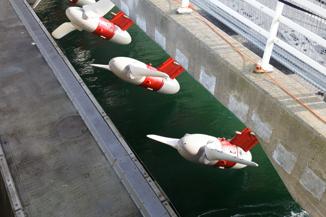Rolls Royce SMR ambitions will bring Hinkley like benefits to regions
Rolls-Royce has shortlisted six locations for its first factory for small nuclear power stations. We look at the impact on regions & local businesses
It’s great news that engineering giant Rolls-Royce has now shortlisted six possible locations for its first factory relating to small nuclear power stations. This is the first of three offsite assembly factories building key elements of the next generation small modular reactor power stations (SMRs). Construction will begin once Rolls-Royce receives the go ahead to build a fleet of SMRs in the UK.
The first factory is the largest and most complex and will create more than 200 permanent roles. This will significantly boost recruitment levels in the region, reducing post-pandemic unemployment. The people and communities in the area will directly benefit from not only the better employment rates, but potentially also better productivity and pay. As well as providing long-term skilled jobs, the new factory will result in significant socio-economic investment in the area. Projects such as this will undoubtedly ease the pressure of cost of living in line with the UK Government’s ambitions for levelling up post-pandemic.
At Browne Jacobson, our energy and infrastructure team have been following the impact of other nuclear-related projects on surrounding areas. We have seen how Hinkley Point C (the first nuclear power station to be built in the UK for half a decade) has had a positive effect on smaller businesses. It has helped to ease the cost of living and boost the wider regional economy, with improved transport connections, education facilities, and much more.
Many in the South West business community have positively embraced this major project on their doorstep. We have seen several SME businesses exploit the opportunities provided by local/government funded bodies offering training, supply chain leads, information and networking opportunities. They have embraced this as a “step up the ladder”, to achieve higher standards and win better quality work. As they have “stepped up”, this has enabled other, smaller businesses to expand into newly created space in the market.
The wide variety of types and sizes of local businesses involved in some way or other in the Hinkley Point C project is astonishing. We have seen how some of these companies have effected enormous transformation in their organisations, business models, and approach to markets. We have helped them facilitate change to their HR, Data, IP and Technology as well as their Contracts and approach to Risk and Compliance. In many instances (and as is often the case on any major project), an initial “one off” minimal involvement has led to repeat business, referrals across the project (and outside it), and significant increases in headcount and turnover as a result. These successful transformations are now “lean”, growing businesses, often with an innovative spin and technological edge they did not previously have.
There is no doubt that whichever location is chosen for the first SMR, a significant number of jobs, manufacturing and otherwise will be created. There will be significant opportunities to up-skill and level-up. Companies wanting to get involved in the nuclear industry should look to streamline their businesses in terms of rationalising and integrating their systems and processes with a view to heightened efficiencies, through full data collection and transparency. They should investigate enhancing their ISO (or equivalent) qualifications and potentially look to achieve the Fit for Nuclear (F4N) status.
Nuclear is an absolute cornerstone of the UK’s energy strategy over the next 50 years and Rolls-Royce’s first SMR factory is one of several other nuclear-related projects on the horizon. Involvement in this, and any other major project, has the added comfort that once formally approved, this ‘critical infrastructure’ is likely to continue regardless of the eco-political climate.
This kind of project will offer wide-reaching benefits to the local community, including post-pandemic recruitment and easing the pressure of cost of living. In the context of the levelling up agenda, the wider regional economy will be boosted across all sectors including transport, housing, hotels, leisure, retail and more.
This article was originally published by New Civil Engineer in July 2022.









































